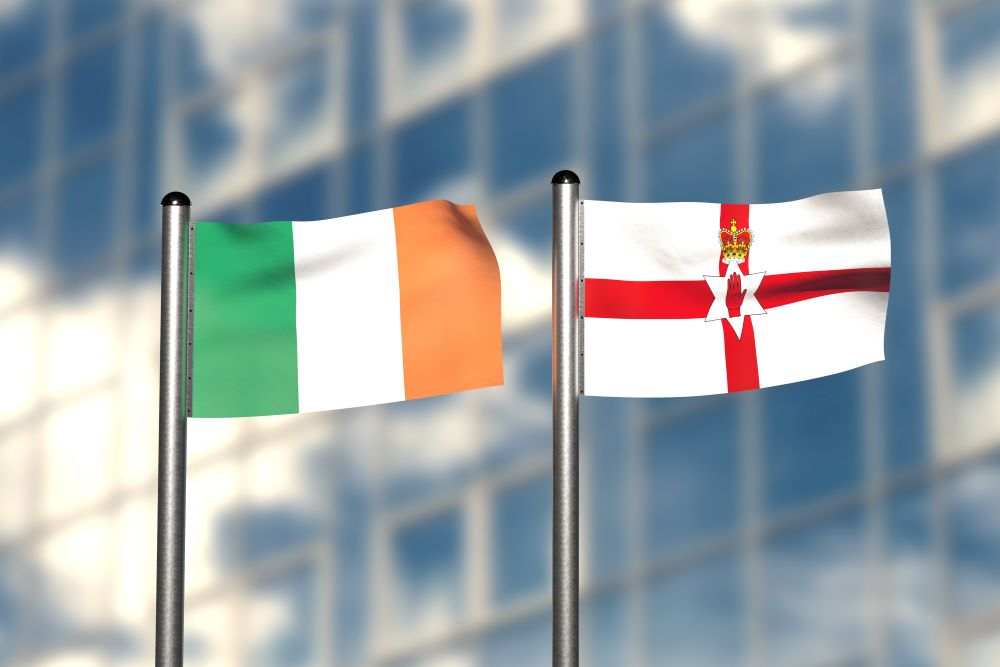
Cross-border trade between the Republic of Ireland (ROI) and Northern Ireland (NI) jumped by €2.8bn in 2021, according to full year figures from Ireland’s Central Statistics Office.
Imports to ROI from NI were up 65% to €3.9bn, with trade in the other direction up 54% to €3.7bn.
ROI-GB imbalance
There was a drop of just over €2.3bn in exports from Great Britain (GB) to ROI (a 13% decrease) while exports the other way actually increased by 17% to almost €14.4bn.
This was likely due to the EU introducing post-Brexit customs rules at the start of 2021 while GB has only introduced controls on EU goods in phases.
While customs declarations have been required for EU goods entering GB since the start of 2021, an exception was made for ROI goods, with GB delaying the point at which checks will begin on ROI goods while talks are ongoing on the future implantation of the NI Protocol.
According to the Guardian, the UK as a whole has slipped from being ROI’s single biggest trading partner before Brexit to now being level with the US.
Food and animals
Food and live animals made up the biggest increase in trade in both directions on the island of Ireland.
The past year also saw a tripling in the value of imports of chemicals and related products to ROI from NI, up from €280m in 2020 to €850m in 2021, with big rises also in imports of fuel.
NI benefits
GB’s loss has been NI’s gain when it comes to post-Brexit trade with ROI, according to Politico.
It says NI exporters have maintained barrier-free trade due to remaining subject to the EU single market, as entailed by the NI Protocol.
In comparison, goods arriving from GB now face new regulatory, customs and sanitary hurdles at Dublin Port.
Greater cooperation
Neale Richmond, European affairs spokesman for ROI’s governing Fine Gael party, called for greater cooperation between the export promotion agencies in Belfast and Dublin.
“Businesses and traders have shifted their trading patterns to the path of least resistance and are focusing their goods in the internal EU market,” he said.
Supply changes
Some businesses are now sourcing more products on the island of Ireland, rather than from GB.
Martin McVicar, the managing director of a forklift manufacturer in the Republic told the BBC his business has increased its purchases from Northern Ireland suppliers by 33% since 2019.
“We don’t want to solely rely on supply chains from overseas, with so much disruption,” he said.
Protocol update
Brexit negotiators Liz Truss and Maros Sefcovic due to speak on Friday for their latest catch up on Protocol negotiations.
The UK’s NI secretary Brandon Lewis has said that there is “landing ground” for a deal on its future implementation, despite ongoing challenges, reports the Irish Times.
Costs
A new report from MPs on the Commons European Scrutiny Committee says that EU proposals could see millions of pounds of new regulatory costs imposed on NI.
The EU plans will see some construction waste in NI diverted from landfill to incinerators in GB and see collections for ash from domestic wood and coal burning potentially separated – which could cost more than £1m per year.
Dealing with household ash would also incur an additional estimated one-off cost of £5.4m.



